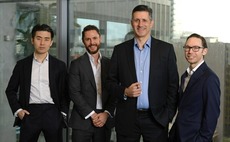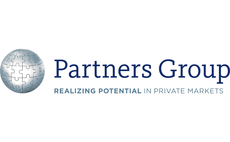
Profile: 500 Startups' Dave McClure
A Silicon Valley veteran of nearly 25 years standing, 500 Startups founder Dave McClure has worked for PayPal and sold a software firm to Intel. Now he is bringing his own brand of angel investing to Asia
Back in 1989, the Internet was still a little known concept to most; future tech giants like Adobe were little more than start-ups and Facebook founder Mark Zuckerburg was barely out of kindergarten. This was the year Silicon Valley super angel and 500 Startups founder Dave McClure, a fresh-faced graduate from Johns Hopkins University, arrived on the West Coast from his home town in West Virginia.
Much less the internet hotbed, Silicon Valley was still largely home to a defense industry that had fallen on hard times.
"A lot of defense contractors had been downsizing and the internet business wouldn't take off for another 5-6 years, so they were more challenging times," recalls McClure. "But there was still a lot of enthusiasm for technology and everyone was down here going after the dream. For me it was a great awakening."
Like many would-be entrepreneurs, McClure was an early starter in technology, spending his last summer prior to college writing programs for a payroll system at his mother's company. He continued programming in his spare time while studying mathematical sciences engineering.
The experience would serve McClure him well in the Valley working in database development and consulting, which eventually led to the formation of Aslan Computing in 1994. "I made a bunch of mistakes and learnt a lot about founding and running a business," he says. "It was a long period without a huge amount of fanfare but I certainly gained a lot from it."
The bubble begins
It was around this time that the internet sector experienced its first period of excess. McClure recalls being in the lobby of Netscape the day it went public in 1995 and its stock value more doubled in the first day of trading - the beginning of the dotcom bubble. Three years later McClure exited Aslan to Servinet/Panurgy.
He continued as a tech consultant before joining online payment service PayPal as marketing director in 2001, the year the bubble burst. "It was certainly a good time to be at PayPal but the rest of the valley was pretty depressing," says McClure. "With the exception of Paypal, eBay and Google, there weren't a lot of positive stories."
McClure stayed with PayPal throughout its IPO and subsequent $1.5 billion acquisition by eBay in 2002. In his last year with the company McClure starting angel investing - backing around four companies in the first year before setting out on his own and investing in around 15 internet start-ups between 2004 and 2008.
The most successful included personal finance software service Mint.com (sold to Intuit for $170 million) and software firm Mashery (sold to Intel for $180 million). Having invested $300,000 during those four years, McClure estimates he made a 3x return over the next five.
In 2008, McClure looked to start his own fund, targeting around $5-10 million, but when the global financial crisis hit this plan was put on hold. Instead McClure was recruited by Founders' Fund where he spent a year managing their in-house portfolio of seed-stage companies before taking up the reins at Facebook's fbFund. Emboldened by these experiences, he decided to set up 500 Startups in 2010.
"For an industry where there is so much talk about the deals and company creation - there isn't really a lot of talk about how you start a venture fund," says McClure. "I really didn't have a lot of traditional fund connections so in retrospect it was a bit ambitious of me to want to start my own venture fund."
After a first close at just over $5 million but took another 18 months to make the $30 million hard cap. The LPs were predominantly other VC firms, high net worth individuals, corporates and family offices. "Compared to making deals, fundraising has been much harder," he says.
Like many early-stage investors, 500 Startups, which has since reached a final close on its second fund of $40 million, makes many small investments - putting in $50,000-100,000 - with subsequent rounds for companies that gain traction. However, McClure was keen to differentiate himself by putting more of an emphasis on opportunities overseas.
Traveling geeks
This started with "Geeks on a Plane," which took a group of Silicon Valley angel investors on a whistle-stop tour of Tokyo, Beijing and Shanghai in 2009. Describing the trip as being something of a "boondog" initially, McClure says Geeks on a Plane has since evolved into a great way for 500 Startups to build its global network.
"A lot of folks thought we were crazy trying to develop an international approach," says McClure. "They thought we would be at a disadvantage to local investors but that is not how is panned out."
To date, 500 Startups has made around 150 investments overseas: 70 in Latin America, 60 in Asia and the rest in Europe and elsewhere. As part of its global strategy, the company has also sought to establish a handful regional vehicles in the $5-10 million range that make the initial investments, with the main global fund coming in on subsequent rounds for the success stories.
These include 500 StartupWallah in India, 500 Luchadores in Mexico and the recently announced $10 million 500 Durians fund in Southeast Asia. For McClure, this is just the beginning for Asia, with 500 Startups now recruiting people in Beijing and Kuala Lumpur.
"I'm spending three months a year in Asia," he says. "We just came back from Southeast Asia and huge opportunities are still emerging in Indonesia, Thailand, Vietnam and the Philippines."
Latest News
Asian GPs slow implementation of ESG policies - survey
Asia-based private equity firms are assigning more dedicated resources to environment, social, and governance (ESG) programmes, but policy changes have slowed in the past 12 months, in part due to concerns raised internally and by LPs, according to a...
Singapore fintech start-up LXA gets $10m seed round
New Enterprise Associates (NEA) has led a USD 10m seed round for Singapore’s LXA, a financial technology start-up launched by a former Asia senior executive at The Blackstone Group.
India's InCred announces $60m round, claims unicorn status
Indian non-bank lender InCred Financial Services said it has received INR 5bn (USD 60m) at a valuation of at least USD 1bn from unnamed investors including “a global private equity fund.”
Insight leads $50m round for Australia's Roller
Insight Partners has led a USD 50m round for Australia’s Roller, a venue management software provider specializing in family fun parks.








